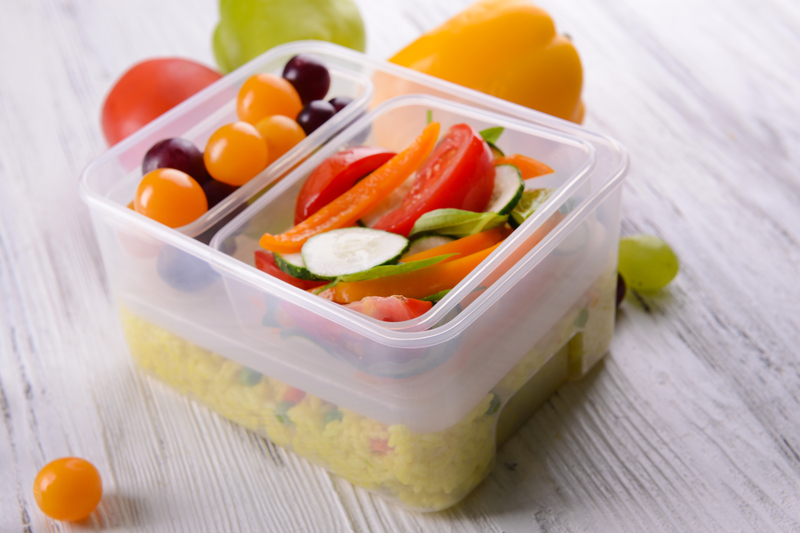Simple Ways to Save Money When Dealing With Bulky Waste
Managing bulky waste can be an overwhelming and often expensive task for homeowners and businesses alike. Old sofas, broken appliances, mattresses, construction debris, and other unwieldy items accumulate faster than expected. Whether you are moving, renovating, or simply decluttering, finding cost-effective solutions for bulky waste disposal is crucial. In this comprehensive guide, we explore simple and savvy ways to save money when dealing with bulky waste, ensuring your property stays clean without breaking the bank.
Understanding Bulky Waste and Its Disposal Challenges
Bulky waste, also known as large item waste or bulk trash, refers to objects that are too large to be disposed of through regular garbage collection services. Common examples include:
- Furniture like sofas, chairs, and beds
- Appliances such as refrigerators, washing machines, and ovens
- Mattresses and box springs
- Renovation debris (tiles, drywall, lumber)
- Yard waste - tree branches, stumps, and more
These large waste items present specific challenges due to their size, weight, and often hazardous materials. Municipal collection services usually limit the volume or number of bulky items collected at a time, and private junk removal can get expensive quickly. But with a bit of research and creativity, there are several economical ways to clear out bulky trash.

1. Re-evaluate and Repurpose: Reduce Your Bulky Waste First
Is It Really Waste?
One of the simplest ways to minimize bulky disposal costs is to critically assess what you really need to throw away. Can those old cabinets be used for garage storage? Could broken furniture be transformed into DIY projects with a coat of paint or minor repairs? Repurposing and upcycling can save you money and reduce landfill waste.
- Refinish or repaint furniture to give it a new life.
- Repurpose wooden pallets or crates into shelving or outdoor furniture.
- Use old appliances for parts or storage.
Hosting a DIY Workshop or Community Event
Some communities organize repair cafes or upcycling workshops. Invite friends and neighbors to repair or repurpose items together. This not only saves on bulky waste disposal but also fosters community spirit.
2. Sell or Donate Usable Items - Save on Disposal Costs
Turning Trash into Treasure
Before you pay to haul away large items, consider whether someone else could use them. Donating, selling, or giving away bulky household items is one of the most effective ways to save money on disposal and even earn a little cash.
- Online Marketplaces: List furniture, appliances, and other usable bulky goods on platforms like Craigslist, Facebook Marketplace, or local classifieds. Many people are willing to pick up items themselves, saving you hauling fees.
- Charities and Nonprofits: Organizations such as Goodwill, Salvation Army, and Habitat for Humanity often accept gently used furniture and appliances. Some even offer free pickup.
- Community Groups: Join local online groups where you can offer items for free, such as a neighborhood Buy Nothing group or Freecycle.
This approach not only helps you avoid bulky waste fees but also benefits others and reduces environmental impact.
3. Schedule a Bulky Waste Collection with Your Municipality
Take Advantage of Free Municipal Services
Many local councils or municipalities provide free or discounted bulky item pickups for residents, usually once or twice a year. Check your city's website or call your local waste department to see if you qualify.
- Bulk Trash Days: These pre-scheduled collections allow you to dispose of large amounts of bulky waste at little or no cost.
- Book-In-Advance Services: Some municipalities require residents to schedule pickup slots--plan ahead to make the most of these free services.
- Special Collection Events: Watch for advertised "clean-up days" or recycling events where you can drop off large items for free.
Note: Municipal services may restrict the number, size, or type of items accepted, so verify details before scheduling your pickup.
4. Pool Resources with Neighbors and Friends
Share Costs and Save More
If you live in a neighborhood where several households need to dispose of bulky waste, consider combining efforts. Renting a large dumpster or hiring a junk removal service can be expensive for one family but much more affordable when split.
- Coordinate a group pickup by splitting the expense of renting a skip bin or hiring a truck.
- Bulk discounts: Some disposal companies offer reduced rates for larger loads or group bookings--ask about special pricing.
- Shared labor: Organize a communal clean-up day where everyone lends a hand with lifting and loading bulky items.
5. DIY Disposal: Use Your Own Vehicle or Rental
Transport Bulky Items Yourself
For those with a suitable vehicle (such as a pick-up truck or large SUV), hauling bulky waste directly to local disposal sites can offer significant savings. Most landfills or recycling centers charge by volume or weight, and home drop-offs can be far cheaper than hiring professionals.
- Check local fees: Landfill and recycling center rates may vary--it's often much less for residents than commercial haulers.
- Rent a trailer or van: If you don't own a large vehicle, short-term rental from hardware or rental businesses can be a cost-effective option.
- Plan multiple loads: Group your bulky waste with neighbors to maximize each trip and split costs.
Tip: Make sure to secure and cover items properly to avoid fines for unsecured loads.
6. Recycle Bulky Waste Responsibly
Look for Bulk Recycling Programs
Disposing of large items responsibly means keeping recyclables out of landfills and often comes with cost-saving perks. Many communities offer free or low-cost bulky recycling drop-offs for certain items:
- Electronics recycling: Check for annual e-waste recycling events or permanent drop-off locations for TVs, computers, and appliances.
- Mattress recycling: Some states and organizations collect used mattresses for free or a small fee, keeping valuable materials out of the landfill.
- Metal and scrap yards: Offer unwanted appliances or metal furniture for recycling--some yards even pay you for scrap metals.
- Construction debris recycling: Concrete, bricks, and wood from renovations may be accepted at specialized facilities.
These programs reduce hauling costs and help the environment by diverting materials from landfills.
7. Compare Junk Removal Services - Don't Settle for the First Quote
Shop Around for the Best Bulk Trash Removal Rates
If you do need to hire a junk removal company for your bulk waste, take time to compare options. Prices can vary widely between service providers, so use these strategies to save:
- Get multiple quotes: Contact several companies and get written estimates for the items you plan to dispose of.
- Ask for price breakdowns: Some providers charge by volume, others by item or weight. Understand how the fees are calculated.
- Inquire about discounts: Are there lower rates for curbside pickup, senior citizens, or veterans?
- Negotiate: Some companies may match or beat competitor prices if asked directly.
Tip: Ask whether the company donates or recycles items rather than sending everything to the landfill--this can sometimes further reduce your costs.
8. Avoid Fines - Know Your Local Bulky Waste Rules
Proper Disposal Saves Money in the Long Run
Many communities issue hefty fines for leaving large items on the curb without scheduled collection or for illegal dumping of bulky waste. To avoid unexpected expenses, always:
- Check with your local waste authority for regulations and collection schedules.
- Follow all guidelines for how and when to place bulky waste for pickup.
- Don't dump items on vacant lots or public land--fines can far exceed any savings from avoiding disposal fees.
Knowledge of the rules saves you money and keeps your neighborhood looking its best.
9. Plan Ahead: Time Your Disposal to Save Money
Strategize for Cheaper Bulk Waste Removal
Last-minute junk removal or waiting until you have a big pile can leave you with few options and higher costs. Instead, plan in advance:
- Take advantage of free community collection days--mark them on your calendar.
- Schedule your projects (renovations, moves) to coincide with these free or discount periods.
- Stack items neatly and sort by type to make hauling or donating easier and cheaper.

10. Bonus Tips: Creative Ways to Reuse or Dispose of Bulky Trash
- Offer for "DIY" Repairs: Mechanics, artists, or DIY enthusiasts often look for old appliances, shelves, or metal for parts or projects. List items for free online.
- Contact Local Theaters or Schools: Theatrical productions frequently seek large set pieces, furniture, or props and may accept donations.
- Garden Projects: Broken bricks, concrete, or wood can sometimes be reused for landscaping or raised garden beds.
Remember: Every large item repurposed or donated not only shrinks your disposal fee but also benefits others and reduces landfill waste.
Conclusion: Smart Savings for Bulky Waste Removal
Dealing with bulky waste doesn't have to drain your wallet. With a little organization, creativity, and knowledge of your local resources, you can tackle even the biggest disposal challenges affordably and sustainably. Whether through donation, recycling, careful scheduling, or collaborative efforts, these simple and effective tips to save money when dealing with bulk trash will keep your home, wallet, and the environment cleaner and greener.
Start today--reduce, reuse, donate, and plan ahead--and you'll discover that managing bulky waste on a budget is easier than you think!
```